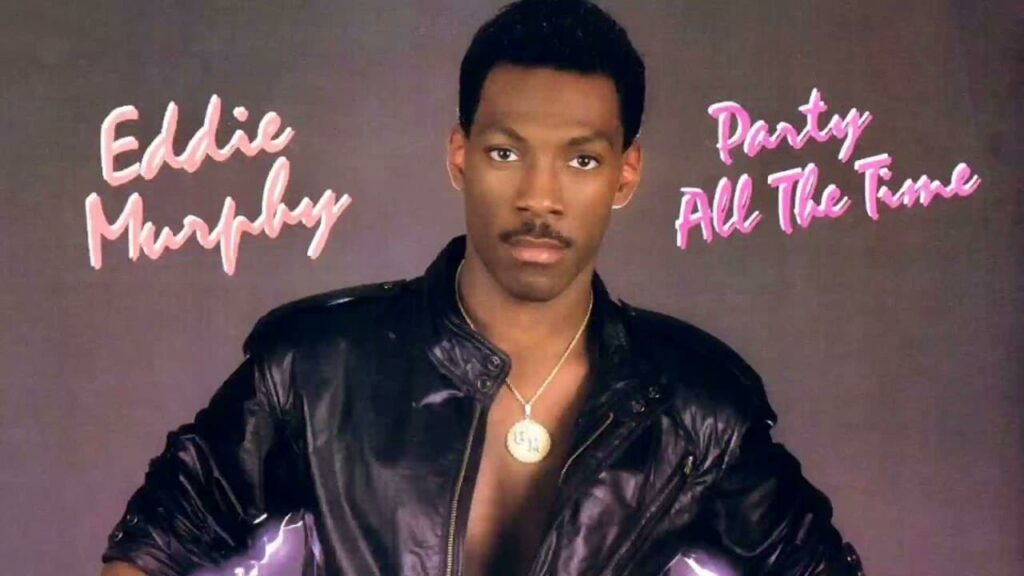
A Synth-Driven Slice of 80s Excess, Serving Up a Cautionary Tale in a Danceable Package: Eddie Murphy’s “Party All the Time”
A synth-soaked anthem of romantic frustration, a cautionary tale of unchecked hedonism wrapped in a wildly infectious dance-pop groove, Eddie Murphy’s “Party All the Time” remains a delightfully bizarre and undeniably catchy artifact of the 80s. Reaching number two on the Billboard Hot 100 in 1985, this unexpected hit, from his album “How Could You Let Me Love You?,” showcased a surprising musical talent from the comedic superstar, and delivered a slice of pure, unadulterated 80s excess that still elicits a mix of nostalgia and bewildered amusement. It’s a song that captures the spirit of a decade defined by its bold sounds and larger-than-life personalities.
In the mid-80s, Eddie Murphy was a cultural phenomenon, a comedic force of nature who dominated both the box office and the television screens. His foray into music was met with a mix of skepticism and curiosity, but “Party All the Time” quickly proved to be more than just a novelty. It was a genuine hit, a testament to the era’s willingness to embrace the unexpected and the power of a well-crafted pop song. The song, produced and co-written by Rick James, carried the unmistakable stamp of the era’s synth-driven sound, a sound that was both futuristic and undeniably catchy.
The story behind “Party All the Time” is a fascinating blend of comedic star power and musical collaboration. Rick James, known for his flamboyant personality and his mastery of funk and R&B, lent his signature production style to the track, creating a sound that was both edgy and accessible. While Murphy’s vocal abilities might not have been those of a seasoned singer, he delivered a performance that was filled with charisma and a genuine sense of fun. The collaboration was an unlikely pairing, but the result was a song that captured the zeitgeist of the era, a perfect blend of comedy and pop sensibility.
The meaning of “Party All the Time” is a surprisingly relatable tale of romantic frustration, a lament from a man who feels neglected by a partner obsessed with the nightlife. Beneath the catchy synth lines and Murphy’s playful delivery, there lies a relatable message of longing for connection and a desire for balance in a relationship. It serves as a cautionary tale of the dangers of excessive partying, and the toll it can take on personal relationships. While the song is undeniably fun and danceable, it also carries a subtle undertone of melancholy, a sense of longing for a deeper connection amidst the glittering distractions of the 80s. The song, in a way, serves as a mirror to the era’s excessive nature, reflecting the highs and lows of a life lived in the fast lane.
Musically, “Party All the Time” is a quintessential 80s pop production. The prominent synth lines, the driving drum machine rhythms, and the catchy chorus create a soundscape that is both energetic and undeniably dated. Murphy’s vocals, while not technically perfect, are filled with charisma and a playful energy that perfectly complements the song’s lighthearted tone. Rick James’s production, with its signature funk influences, adds a layer of edginess to the track, preventing it from becoming overly saccharine. The song’s arrangement, with its catchy hooks and danceable rhythms, made it a staple of 80s dance floors and a lasting artifact of the era’s musical landscape.
For those who remember the 80s, Eddie Murphy’s “Party All the Time” is a nostalgic reminder of a time when pop music was a playground for the unexpected, a time when comedic superstars could seamlessly transition into the realm of music. It’s a song that speaks to the era’s bold embrace of synth-driven sounds, the playful energy of its pop culture, and the enduring appeal of a catchy, if somewhat bizarre, pop hit. It’s a song that serves as a time capsule, capturing the essence of a decade defined by its larger-than-life personalities and its unabashed embrace of the extraordinary.